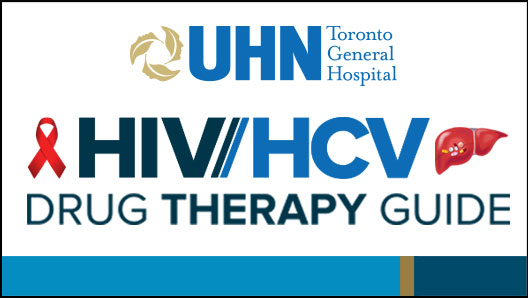What if you have side effects?
Side effects can occur with antiretroviral medications.
The positive aspect is that most side effects such as nausea, vomiting, diarrhea, headache, and feeling unwell are temporary. Most people who experience these side effects find that they are worse during the first one to two weeks after starting medications. During this time, do not adjust your dose or stop your medication without first consulting a physician.
After a few weeks, most people find that they have become used to the medications and the side effects have disappeared or are much less bothersome. If the side effects continue or become worse, consult your health care team.
Some suggestions for getting through temporary side effects include:
- Nausea, vomiting – Try using Gravol* (available from your pharmacy) and follow the instructions on the package. Try the suppositories if you cannot keep anything down. Drink lots of fluid to make sure you do not get dehydrated. Fruit juices or pop are good because they contain sugar and electrolytes which are lost when you throw up. Try eating bland foods like rice, toast, apple sauce, or bananas.
- Loss of appetite – Some people find that their taste for food decreases temporarily when they start antiretrovirals. Do not be alarmed if this happens. If you find yourself unable to eat full meals, try to eat lots of small snacks throughout the day. Stay away from food that makes you feel particularly nauseous. You can also add a food supplement such as Ensure or Advera to your diet.
- Diarrhea – Try using Imodium* (available from your pharmacy). Take one tablet after every episode of diarrhea to a maximum of eight tablets a day. Make sure you drink lots of fluids and eat bland foods that are unlikely to upset your stomach.
- Headache – Aspirin* or Tylenol* can be taken for pain relief. Resting in a quiet dark room with a cool cloth on your forehead may also help.
- Feeling unwell – The best way to treat this is to give yourself plenty of rest. Take time away from work or give yourself a break from your regular schedule if possible. Make sure you continue eating regular meals. Take Tylenol* if you need it or Gravol* if you feel sick to your stomach.
- Rash – Most drug rashes are mild but you should always tell your doctor if your rash starts becoming severe. Try Benadryl*, which is an antihistamine that you can buy at a pharmacy. It may make you drowsy at first until your body adjusts to it. Avoid “non-drowsy” antihistamines such as Seldane and Hismanal, since they may interact with other medications you are taking.
Always ask your pharmacist to make sure these drugs are safe to take with your other medications.
There are many natural or herbal products available through health food stores which claim to help relieve the symptoms of various drug side effects. Most of these products have not been clinically studied. If possible, consult with a naturopath experienced in HIV disease and discuss with other people about what has worked for them.
Less frequent and more serious side effects such as neuropathy (painful tingling in the tips of your fingers and toes), pancreatitis, liver problems and lowered blood cell counts can occur after several months of therapy. Your health care team should watch carefully for these side effects through regular blood tests and physician appointments. These side effects are reversible if quickly recognized and the drug is discontinued or the dose is reduced.
Stop your medication and get immediate medical attention if you experience:
- Sudden wheeziness or shortness of breath, pounding of your heart, chest pain or tightening
- Unusual bleeding or bruising, fever or chills
- Sudden, severe stomach pain with nausea or vomiting
- Severe rash or “hives” with or without symptoms such as fever, blistering, mouth sores, swelling of your eyelids, face or lips, muscle or joint aches or generally feeling unwell.

FAQ's Menu
- FAQ's
- Why take antiretrovirals?
- Why is it important to take medications regularly?
- Why do certain drugs have to be taken with food and others taken on an empty stomach?
- What if you have side effects?
- Should you lower your drug dose if you are having side effects?
- Is it safe to take antiretrovirals with other medications?
- Is it safe to use alcohol or recreational drugs while you are on antiretroviral therapy?
- Why should medications be stored under specific conditions?
- What are some suggestions and tips to help make taking medications easier?
- Who should you tell if you are having problems?
- How can you get support and encouragement?
- Credits

